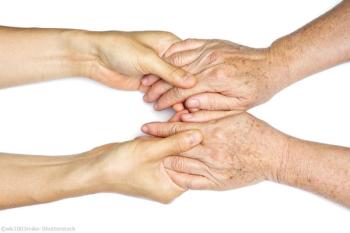
Nurse Navigators Improved Patient Experience, Not QOL
The use of nurse navigators to assist patients with cancer resulted in improvements in patient experience and a reduction of problems with care, according to the results of a recently published study.
The use of nurse navigators to assist patients with cancer resulted in improvements in patient experience and a reduction of problems with care, according to the results of a study
“This is the first randomized trial to show a positive impact on cancer patients from nurse navigator care, and it should offer useful information for program development and improvement,” said study author Edward H. Wagner, MD, MPH, of MacColl Center for Health Care Innovation. “We think that our intervention was successful because the nurse navigators had prior experience with cancer patients, received special training to deal with psychosocial distress, and were familiar with the Group Health system.”
Wagner and colleagues conducted their analysis of nurse navigation on 251 adults with primary breast, lung, or colorectal cancer. Patients were randomly assigned to receive either enhanced usual care (n = 118) or nurse navigator support for 4 months (n = 133). Nurse navigators were trained in empathic listening and behavioral strategies for assessing and addressing patient distress. The nurses contacted the patients within 24 hours of the enrollment on study, which usually occurred within 2 weeks of the initial diagnosis.
The researchers measured outcomes on the Functional Assessment of Cancer Therapy-General Quality of Life scale, three subscales of the Patients Assessment of Chronic Illness Care (PACIC), and selected subscales from a cancer adaptation of the Picker Institute’s patient experience survey.
“Patients linked with a nurse navigator reported feeling better supported emotionally, more involved in their care, better able to plan ahead, and better informed,” Wagner said. “They also experienced fewer problems receiving the information and emotional support they needed, and in the coordination of their care.”
Specifically, the patients assigned to a navigator had significantly higher scores on the PACIC. In addition, these patients reported significantly fewer problems with psychosocial care, care coordination, and information.
No significant differences were found between the groups for quality of life scores.
In an
“It can help reduce the figurative feeling lost by providing comfort, education, and even activation (patient empowerment, as suggested by the persistence of improvements in the care experience well beyond the end of navigation, in the current trial),” Hendren and Fiscella wrote. “If it can be fostered, patient activation may prove particularly fruitful given the challenges of increasingly complex cancer treatment, coupled with the emotional impact of a new cancer diagnosis.”
Newsletter
Stay up to date on recent advances in the multidisciplinary approach to cancer.




































